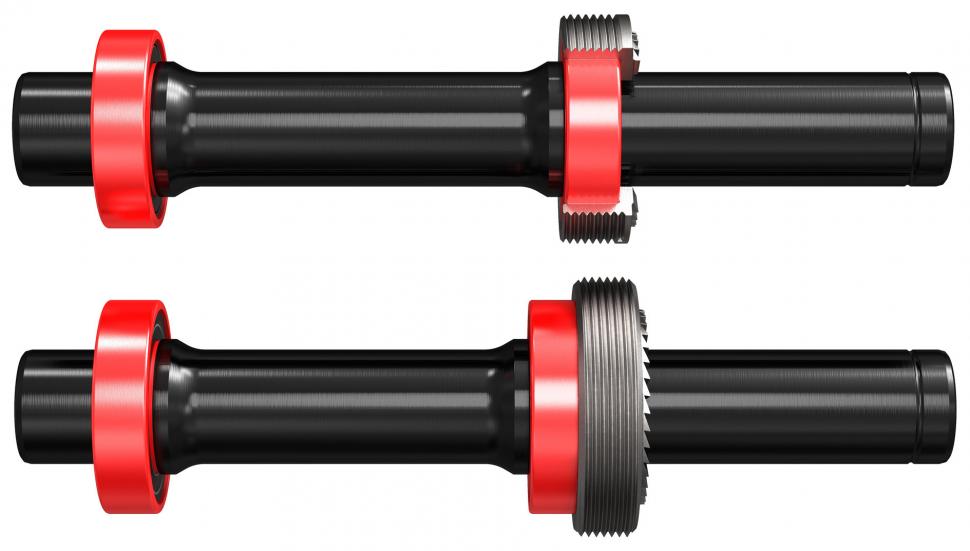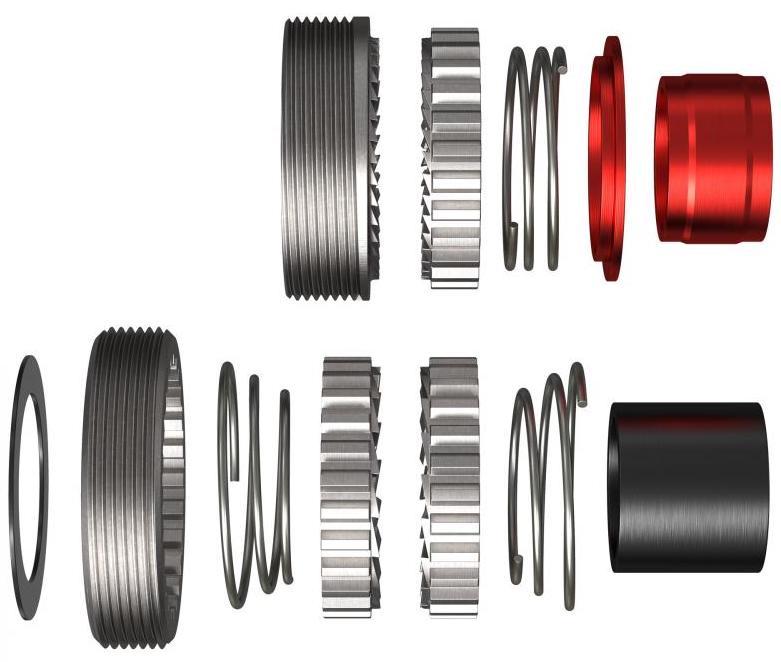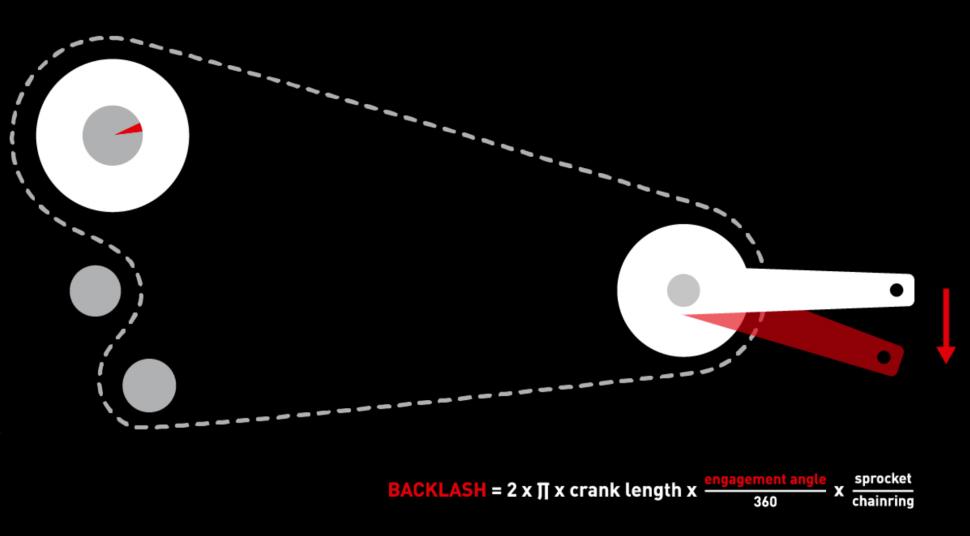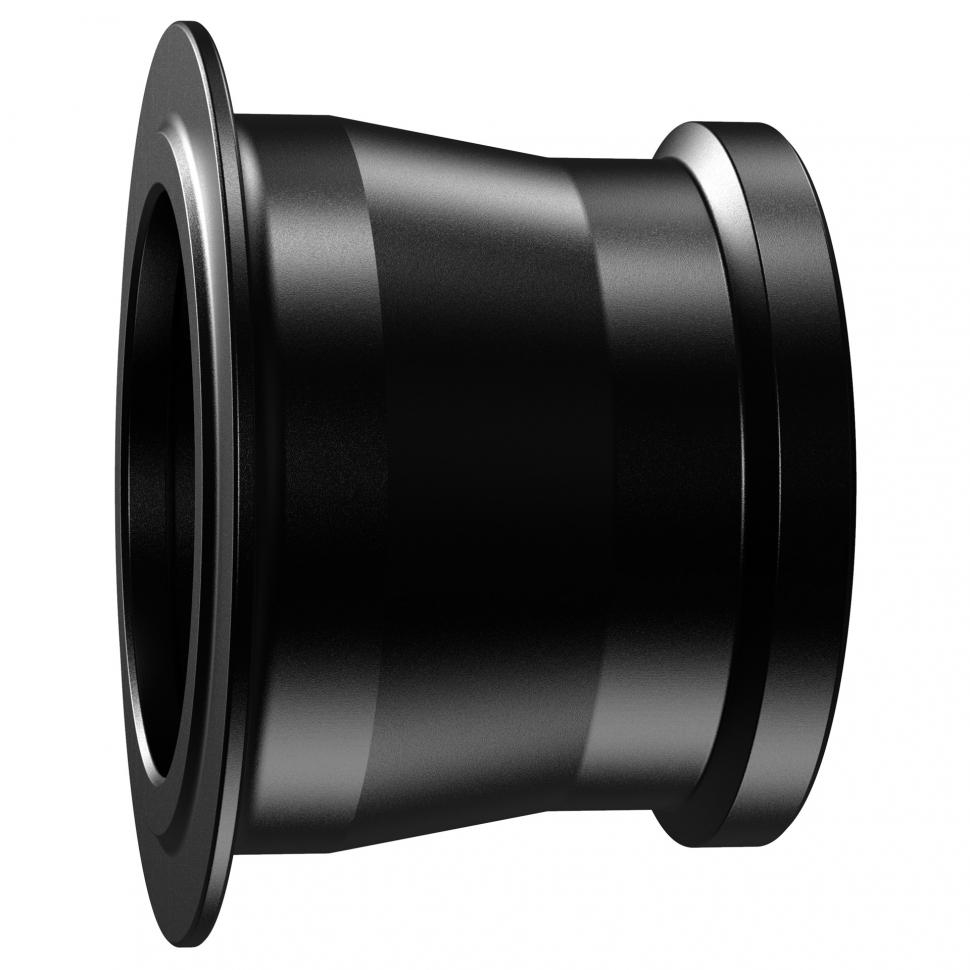- News
- Reviews
- Bikes
- Accessories
- Accessories - misc
- Computer mounts
- Bags
- Bar ends
- Bike bags & cases
- Bottle cages
- Bottles
- Cameras
- Car racks
- Child seats
- Computers
- Glasses
- GPS units
- Helmets
- Lights - front
- Lights - rear
- Lights - sets
- Locks
- Mirrors
- Mudguards
- Racks
- Pumps & CO2 inflators
- Puncture kits
- Reflectives
- Smart watches
- Stands and racks
- Trailers
- Clothing
- Components
- Bar tape & grips
- Bottom brackets
- Brake & gear cables
- Brake & STI levers
- Brake pads & spares
- Brakes
- Cassettes & freewheels
- Chains
- Chainsets & chainrings
- Derailleurs - front
- Derailleurs - rear
- Forks
- Gear levers & shifters
- Groupsets
- Handlebars & extensions
- Headsets
- Hubs
- Inner tubes
- Pedals
- Quick releases & skewers
- Saddles
- Seatposts
- Stems
- Wheels
- Tyres
- Health, fitness and nutrition
- Tools and workshop
- Miscellaneous
- Cross country mountain bikes
- Tubeless valves
- Buyers Guides
- Features
- Forum
- Recommends
- Podcast
TECH NEWS
 DT Swiss 240 EXP Rear Straight Pull Centre Lock 2
DT Swiss 240 EXP Rear Straight Pull Centre Lock 2DT Swiss 240 EXP hubs claim 15% improvement in axle stiffness
The new DT Swiss 240 hubs feature their Ratchet EXP system, integrating the driveside bearing into the threaded ratchet ring to increase axle stiffness by a claimed 15% whilst reducing wear.
The DT Swiss 240 hub has been one of the most popular hubs on the market for years. Chances are, if you’ve bought a relatively high-end set of hoops then you will have had a wheelset with this hub or on with ‘240 internals’.
2020 DT Swiss Mon Chasseral wheels are their lightest yet
DT Swiss have just announced a refresh of the 240 hub, one that sees some small changes to the external shell and a change to the rear driveside bearing that DT Swiss claim improves stiffness and reliability.
The changes centre on the use of DT Swiss’ Ratchet EXP system. This moves the rear driveside bearing outboard, placing it inside the threaded ratchet ring. What you get from this, DT Swiss says, is a claimed “15% improvement in axle stiffness.”
Faster engagement and reduced wear from a larger contact surface
Two of the key things that you want from your rear hub are snappy engagement and long, hassle-free service life. The new 240 has moved to a system that requires only one spring to align the ratchets where the previous system required two conical springs. This, DT Swiss claim, “results in faster full engagement and eventually reduces wear.”
We’ve seen the DT Swiss ratchet system inside their hubs for a few years now. They’re not the only brand to use this freehub engagement method and DTSwiss says that one of the reasons that they chose a ratchet over a pawl design is the larger surface area created to transfer drive force. “The full engagement of the ratchets creates a large contact surface and therefore low surface pressure that leads to superior reliability.”
“What makes the Ratchet System superior is the fact that all teeth on each of the ratchets engage simultaneously every time. In comparison, the engagement surface of pawl hubs is rather small.”
Your complete guide to DT Swiss road wheels
DT Swiss also points out that fewer parts result in a lighter hub, with the new rear hub starting at a claimed 212g where the old 240 rear hub started at 221g.
It’s about the ‘backlash’
The 36 teeth on the ratchet give you an engagement angle of 10º. DT Swiss says that this is rather important as it influences the ‘backlash’. In DT Swiss’ words, this “is the maximum idle distance the crank can turn before the freewheel mechanism engages and converts the force on the crank into acceleration of the wheel.”
“The backlash is influenced by three factors, the crank length, the gear ratio and the engagement angle. The crank length and the engagement angle are proportional to the idle distance of the crank. The gear ratio, on the other hand, has an inversely proportional effect on the backlash”.
Review: DT Swiss PRC 1400 Spline 65
A rather long definition but why does this matter? Well, if you’re jumping back on the power out of a corner in a criterium, you want instant acceleration. A smaller backlash results in faster drive engagement and faster acceleration. They’ve even got that fancy equation, so you can calculate yours at home.
Having more points of engagement would, DT Swiss say, result in a reduction in backlash and therefore faster acceleration. However, they suggest that there would be a weight penalty.
“If we were to introduce a system with more points of engagement we would need to enlarge the construction of the hub what eventually would lead to a significantly higher weight”.
So they say that they’ll be sticking with the 36T ratchet as they claim it “represents the best optimisation” when reliability is also considered. Should you be really keen to reduce backlash, you can buy a 54T conversion kit that takes the engagement angle down to 6.7°.
Home mechanics rejoice
If you’ve ever tried to pull end caps out of a hub, you may well have struggled get purchase on the smooth metal surface. DT Swiss has included a very simple notch on the lip of their end caps. DT Swiss claim that “the newly developed shape of the end caps simplifies disassembly significantly and therefore makes the maintenance even easier.” It’s a nice touch for the home mechanic.
The new DT Swiss 240 hubs are available in road and MTB versions for J-bend and straight-pull spokes. Road versions can be ordered with a Shimano 11-speed freehub or Sram's XDR driver and come in both disc and non-disc variations. Campagnolo freehub conversions are available separately.
Front Road Disc - £159.99
Rear Road Disc - £314.99





He lost me in the video when he claimed that as you can raise your heel up to 30,000 times during a ride, the lighter weight will save you energy;...
Wiveliscombe residents urged to join community protest against new car parking charges...
EE have just offered me TNT sports and Disco+ as part of my mobile package as an add-on, for 2 years. Seemed too good to be true, but it is real....
a loss of concentration is often accepted as mitigation...
It's not the first country to spring to mind I admit but Ridley make some very nice mountainbikes that are being used by the KMC team.
Someone should point out that Sky lose money on their football channels, how does that fit into the bull they put out? And as for watching free to...
To measure chain wear with a ruler you have to be able to measure so precisely that you can tell the difference, measuring from the exact centre of...
"However, he said he was running late and decided to turn left into Norwich Avenue to avoid congestion, when he heard a bang which he said sounded...
Salisbury Shopmobility to reopen after car crashed into wall...
The bars are included although they are apparently 400 mm in all sizes which won't suit everybody. From a recent picture (below) of Astana's...